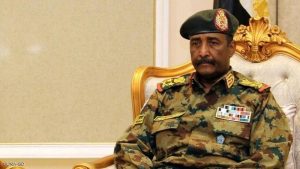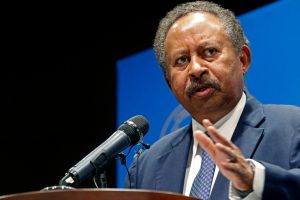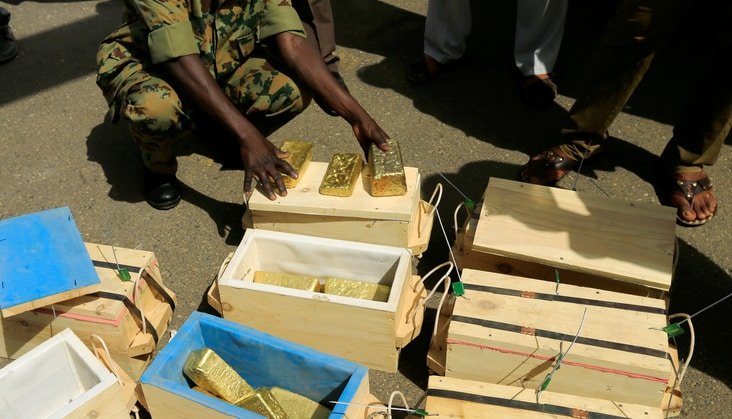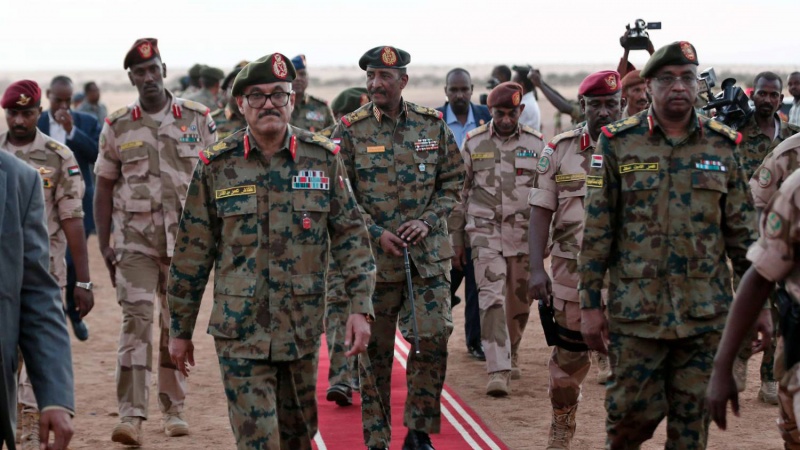Coup for cash: security forces’ unwillingness to relinquish major assets
11 November 2021
A refusal to hand over military-owned financial assets represents one key reason why Lt.-Gen. Abdel-Fattah al-Burhan instigated a military coup on 25 October, political analysts told Ayin.

While Lt.-Gen. Abdel-Fattah al-Burhan claims the military takeover on 25 October was not a coup but a means to “avoid civil war”– political analysts say the timing of the takeover suggests the military remained determined to stay in power to control their economic assets.
Hopes of Sudanese people to achieve the democratic transition they long for were gone as the military took over the transitional government in the country on the 25 October, dissolving the sovereign council, the cabinet, and arrested many leaders of the civil government, while keeping Prime Minister Hamdok under house arrest.
Economist Sidig Kabalo told Ayin that all forms of military investment are an obstacle to the democratic transition in Sudan, adding that preserving personal wealth is one of the motivations behind the coup.
Civilians hoped that after ousting former president Omar al-Bashir in April 2019, Sudan would recover military-owned assets estimated to be about US$15 billion from companies such as Giad Motor Co. Ltd, Zadna Agricultural Corporation, among other companies seized by security forces through an industrial holding corporation run by high-ranking influential army generals, political expert Ahmed Mukhtar said.

Ousted Prime Minister, Abdallah Hamdok had declared in a previous speech back in August that the military controls 80% of the economy and public funds, leaving only 20% for his civilian government to manage. He pledged to make it a “priority” to return companies belonging to the security sector to the government. The former premier openly criticized the overt economic power of the security sector, enjoying US$ 10 billion in capital while the government struggled to fund the Central Bank of Sudan with US$ 3 billion to stabilize the exchange rate.
“The military companies cannot be nationalised and placed under civilians’ management while the army is in power –its leaders think that such requests made by civilian officials are a form of insanity,” says legal and financial expert Hassan Abdul Rahman. “Those [military-owned] companies invest millions of dollars and can prosper rapidly if the military rules alone.”
Burhan has never tolerated civilian oversight of his financial dealings. The coup leader fired Farouq Kambareesi, the deputy general manager of the Central Bank of Khartoum, because he refused to approve a loan for the military industry.
Only on 5 April did the former Finance Ministry publish a “preliminary list” of public companies owned by state institutions -including the military. But the list was only cursory and neglected to mention a large number of military-owned corporations, research and analyst Suliman Bado said.
“Every army in the world invests in defense companies,” said Hamdok during a press conference last year. “But it is unacceptable for the military and/or security services to do so in productive sectors, and thus compete with the private sector.”
An opulent army, militia
The army and security services control 250 companies in vital areas such as gold, rubber, meat exports, flour, and sesame, according to news reports. These are exempt from paying tax and largely operate in total opacity. Military officials, for instance, manage a huge security services company east of the capital, Khartoum, with no state oversight. Similarly, the paramilitary Rapid Support Forces (RSF) own a meat processing industry in Omdurman, according to reports.

Osman Ahmed, an expert in military economies in Africa, told Ayin that the RSF receives significant funds from gold exports. With Sudan annually exporting US$16 billion to the United Arab Emirates alone, major gold mine owners such as RSF leader Mohamed Hamdan Dagalo (known as “Himmedti”) could not allow a civilian leadership to further regulate his gold exports, Ahmed said.
Burhan’s deputy Himmedti rose to power as a brigadier-general in command of some 5-6,000 fighters of the government-backed Janjaweed militia. They were rebranded as the Rapid Support Forces, and in 2017 took over the Jebel Marra gold mine in Darfur along with three other mines.
While a certain level of government regulation of the gold industry took place last year, gold smuggling to avoid taxation remains rampant. Last year, Hamdok said in an interview with Radio Omdurman that the biggest threat to Sudan’s economy was the widespread smuggling of goods, particularly gold, representing 40% of the country’s export economy. If the political will existed, said the late Umma Party leader Sadiq el-Mahdi in a press conference, security officials could have secured Sudan’s ports to allow the country to export 200 tons of gold within three months and “fix the economic crisis”.
Last month, Khartoum International Airport authorities found 18 kg of gold that belongs to an armed former rebel movements signatory to the Juba Peace Agreement. The gold was intended to be exported secretly to one of the gulf countries according to an investigation by the Dismantling Committee just days before the 25 October coup.
Dismantling Committee
Many economic factors were behind the escalation in political tension between the civil and military components of the transitional government. The army preserved its economic gains inherited from the previous, ousted regime and are now interested in the funds and assets recovered by the Dismantling Committee –an institution set up to recover stolen public funds and assets from the former ruling National Congress Party (NCP) and transfer them to the national treasury.
Mukhtar told Ayin that there is intense competition between the army and RSF to inherit the economic assets from the former ruling party. After brutally breaking the sit-in during the 2019 revolution, these two forces quickly seized real estate properties in the capital and other cities, leaving only crumbs for Hamdok’s government, he added.
“The military companies cannot be nationalised and placed under civilians’ management while the army is in power –its leaders think that such requests made by civilian officials are a form of insanity”
—Legal and financial expert, Hassan Abdul Rahman
“The military institution that was sharing the power with the civilians are setting their eyes on the assets recovered by the committee from the heads of the previous regime,” says a legal official within the Dismantling Committee that prefers not to be named for security reasons. Previously, the military would repeatedly obstruct the committee’s appeals to integrate the acquired funds from the NCP into public assets, the legal official added, presumably to seize these NCP assets for themselves.
Now firmly in power for nearly three weeks, the military and security forces have managed to secure their ongoing control of Sudan’s wealth, Ahmed said. “For this coup to continue, it means Sudan will regress ten years and be ruled by elite army generals and armed groups that will not fear exporting gold publicly through the ports.”


